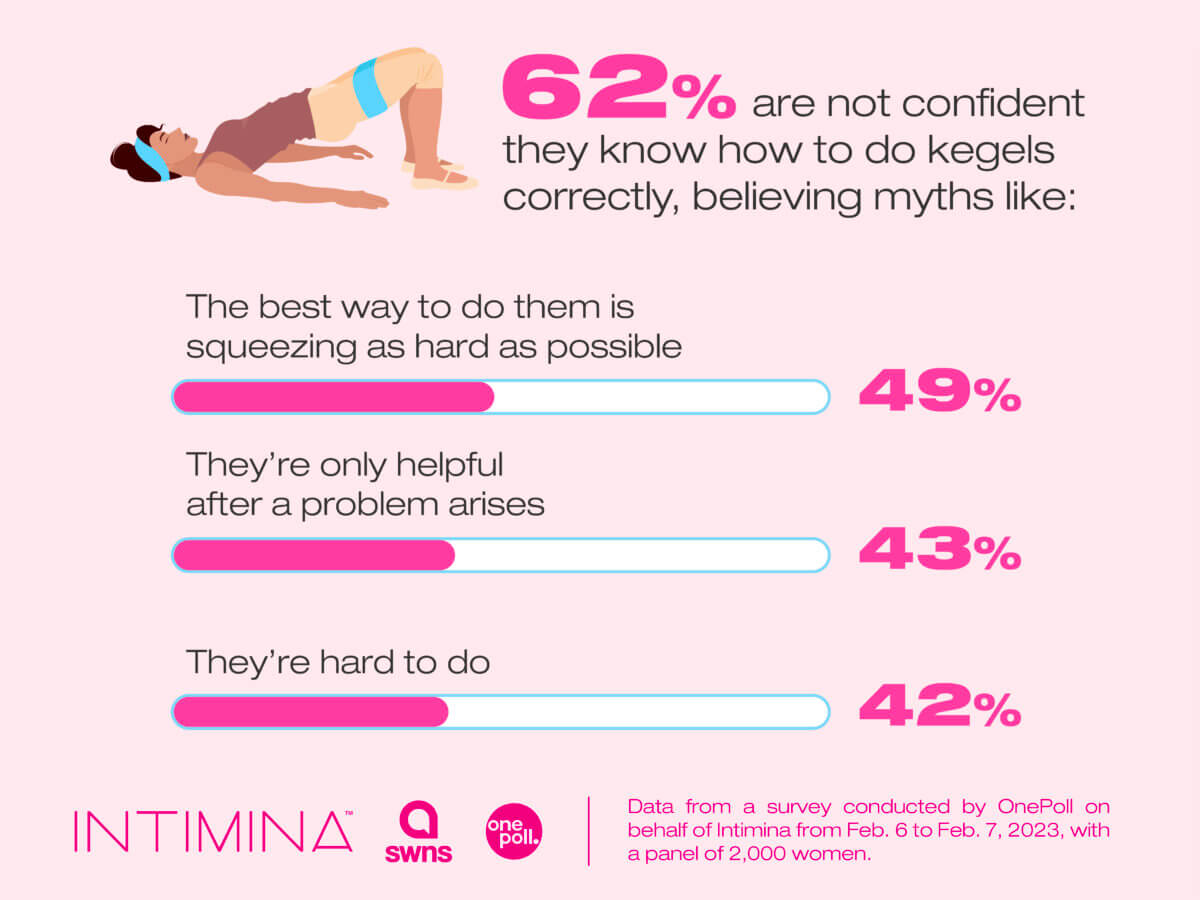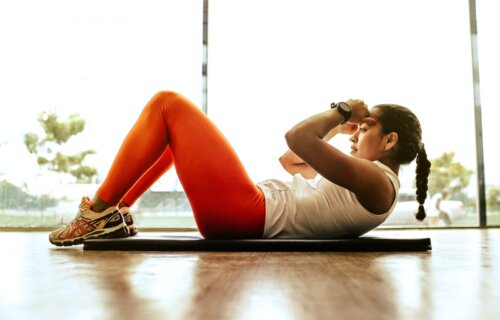NEW YORK — Nearly half of American women don’t exercise enough because of burnout (46%), according to new research. A survey of 2,000 women found that 57 percent used to exercise more frequently than they do now, with exercise burnout sidelining them for nine days at a time.
On average, women exercise four times a week, although 52 percent admit to exercising three times or less. The average workout lasts 44 minutes and consists of a variety of exercises like aerobics (50%), jumping rope (48%), lifting weights (45%), Kegels (44%), and yoga (41%). Many know that there’s room for improvement, with 69 percent confessing that they know they don’t put enough effort into exercising.
Conducted by OnePoll for INTIMINA, the survey also found some of the barriers to women not getting enough exercise, such as feeling tired beforehand (49%), feeling like exercising is difficult (47%), and not having enough time (42%). Additionally, a third of women claim they haven’t seen results from exercising, leaving them feeling insecure (12%) and hopeless (12%). Respondents add they would exercise more if they had more motivation (53%) and better ways to measure their results (34%).
Are you working out all wrong?
Forty-eight percent also claim they’d exercise more if they knew how to correctly perform exercises, as one in eight aren’t confident that they can complete a workout correctly. Results show that women are least confident in knowing how to do tricep dips, wall-sits, and bear crawls correctly. However, most agree that now is the best time they can take care of their bodies (80%) and that it’ll only get harder with age (76%).
“At every age, our bodies undergo changes — some expected, some unexpected,” says Dunja Kokotovic, INTIMINA global brand manager, in a statement. “As women, we must pay attention to these changes and provide ourselves with the necessary preventative care. Whether in their twenties, thirties, forties, or beyond, women’s body deserves the same level of attention and care. By being proactive and addressing any issues early on, women can maintain optimal intimate health throughout their lives. We’re committed to helping women embrace the beauty of their bodies at every age and feel confident in their skin, inside and out.”
Thinking about the future, women know they’ll need to strengthen parts of their body such as their waist (43%), hips (42%), and shoulders (27%). Some of the lesser-considered body parts include glutes or the pelvic floor.

6 in 10 women have issues with Kegels
Respondents also offered advice for preventing issues like “don’t wait too late to keep up on getting your body checked out,” which may be especially relevant since most women haven’t gotten a pelvic exam within the past year (62%), despite recommendations from professionals.
Other words of advice include “be proactive in keeping fit in all bodily areas and not just those that you can see” and “it’s important to do Kegels before you get older and have issues.”
Women may struggle to put this advice into action, since 62 percent are not confident they know how to do Kegels correctly, believing myths like the best way to do them are to squeeze as hard as possible (49%), they’re only helpful after a problem arises (43%), or that they’re hard to do (42%). More than a third of women have experienced issues with their pelvic floor (39%).
“Every woman deserves to feel confident, comfortable and empowered in her body,” Kokotovic says. “That’s why we’re passionate about promoting the benefits of Kegels — not just for intimacy but for overall pelvic health. Kegels are like a secret superpower for women. They may not seem like much, but these simple exercises can work wonders for women’s intimate health: prevent leaks, enhance intimacy, and improve overall health.”
“The key is to do them correctly and consistently and make them a part of a daily routine. By doing this, women can take a proactive step towards maintaining their intimate health and enhancing their overall well-being. Kegels can help maintain pelvic health and prevent issues like incontinence, regardless of life stage. Women should embrace the power of Kegels and feel confident in their bodies at every age.”
Survey methodology:
This random double-opt-in survey of 2,000 women was commissioned by Intimina between Feb. 6 and Feb. 7, 2023. It was conducted by market research company OnePoll, whose team members are members of the Market Research Society and have corporate membership to the American Association for Public Opinion Research (AAPOR) and the European Society for Opinion and Marketing Research (ESOMAR).
